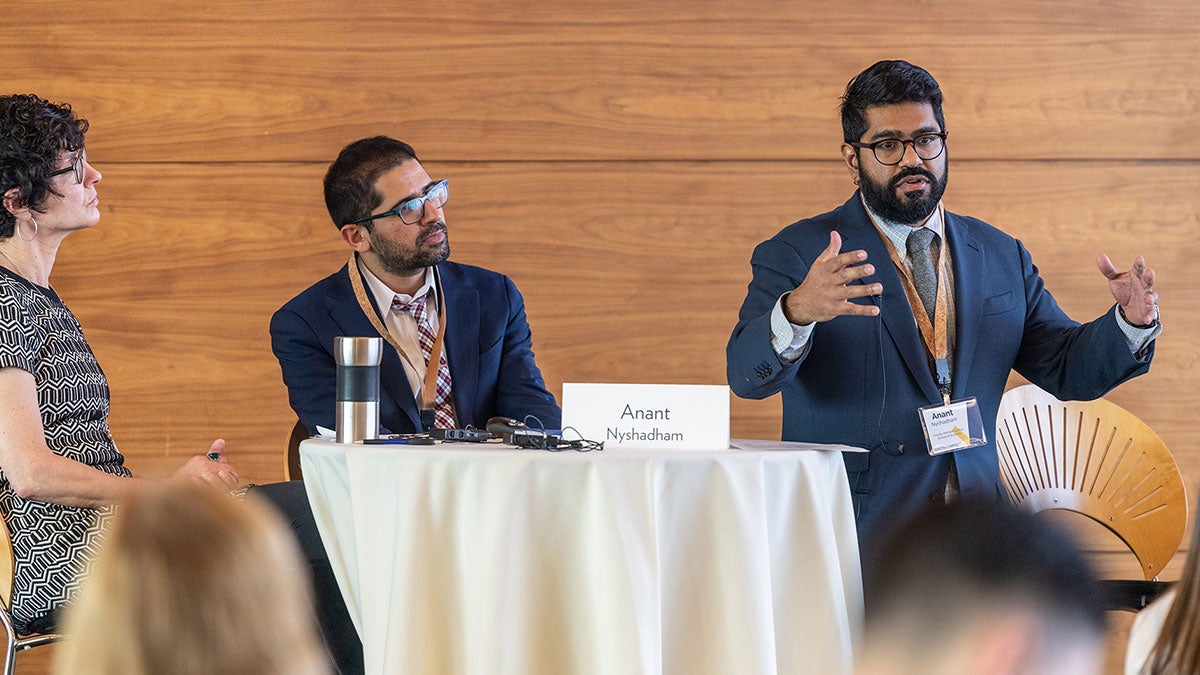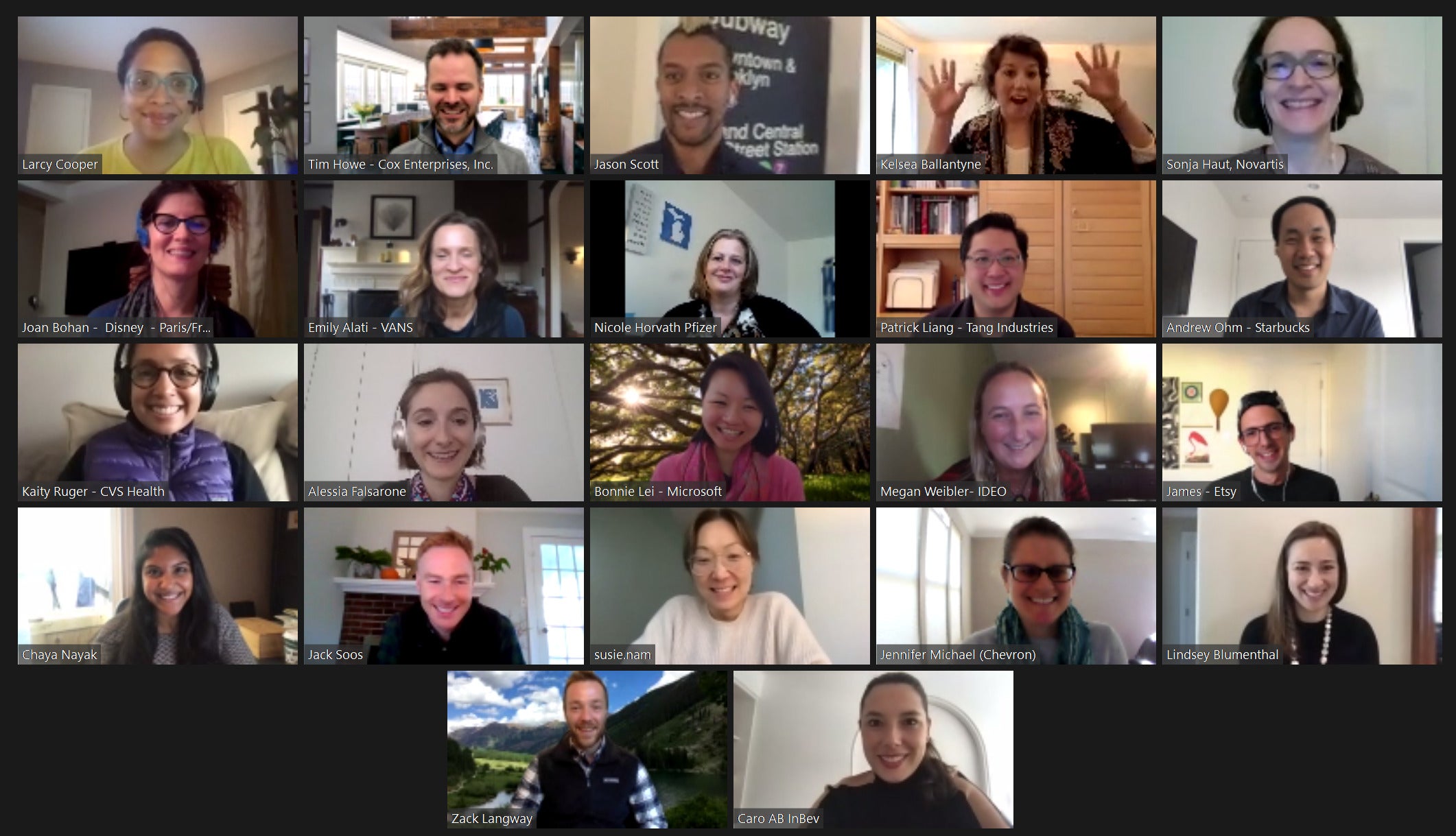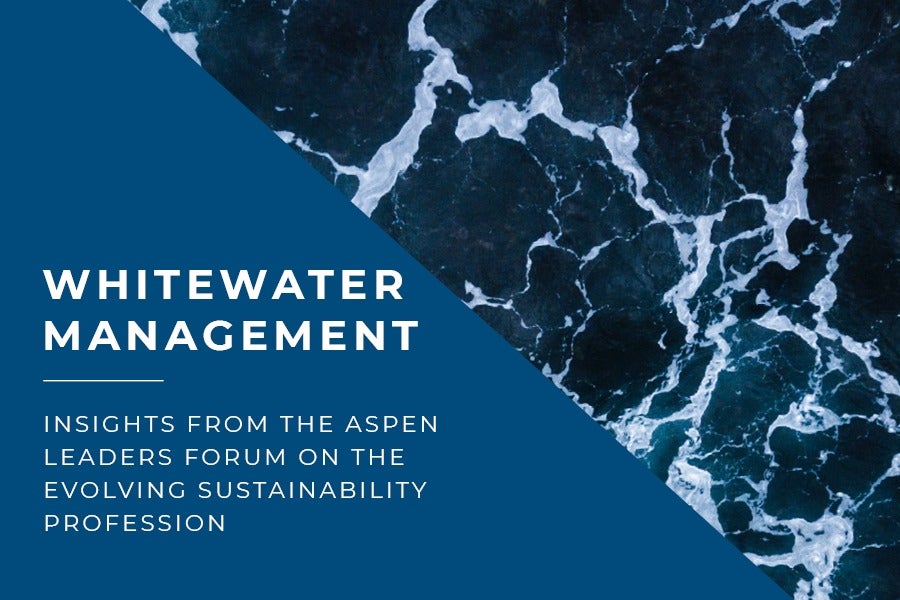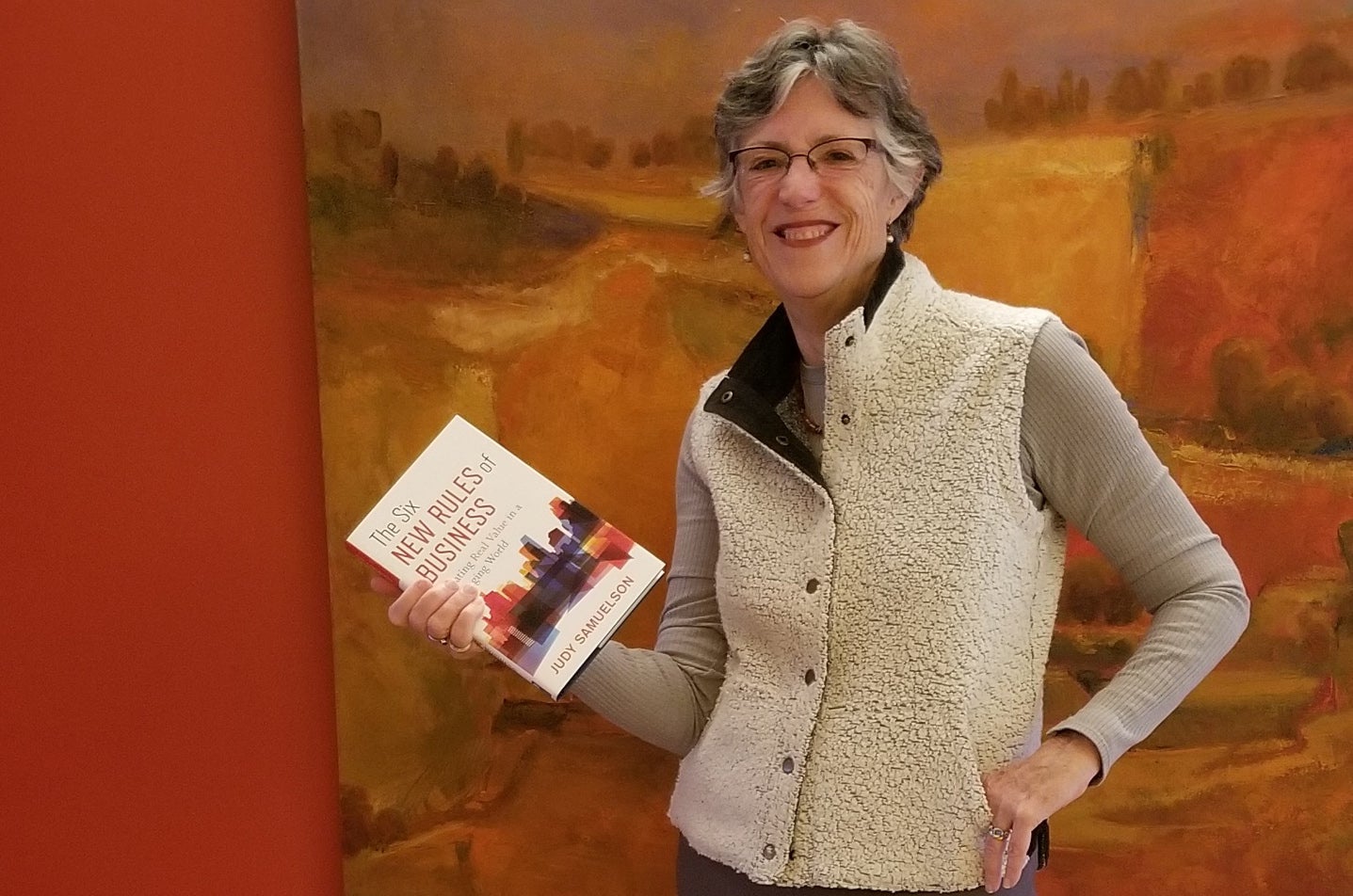A global pandemic. An economic crisis. A crisis of racial injustice. And all the while, a worsening environment. 2020 will be remembered as a year of relentless challenges.
For many organizations, it was also a year of living digitally—certainly this was the case for the Business & Society Program, where the year spurred innovation in programming and content. A month-by-month timeline of this extraordinary year:
January
What will prove a year of drastic upheaval and change starts with a hopeful sign when Microsoft announces its 30-year plan to go carbon-negative. As Business & Society Executive Director Judy Samuelson writes in Quartz, this bold announcement continues, and advances, the trend of companies committing to bold progress on climate.
February
What does America’s economy and mood look like on the eve of the pandemic and economic crisis? A headline in our monthly news digest, What We’re Reading, captures a starkly different moment, in light of all that will soon follow: “Black Workers’ Wages Are Finally Rising.”
Before the shutdown in March, “Igniting Impact,” an event at the University of Michigan Ross School of Business, invites academics and business executives to meet and brainstorm solutions to pressing social issues. Gathering in small break-out groups to socialize and strategize, few at the time imagine that it will be the last in-person gathering of 2020.

March
With COVID cases reaching the breaking point in major U.S. cities and “flatten the curve” our new mantra, offices around the country move to a work-from-home model. As businesses across the U.S. shutter, millions of jobs are lost and the stock market shutters.
Aspen Business & Society staff respond:
Communications Manager Keith Schumann and the Business & Society team look for lessons from the global financial crisis in the sixth episode of the Business 20/20 podcast, asking whether economic crises are crucibles for change (For the better).
Nancy takes a view at once personal and informed by history, reflecting on the aftermath of 9/11 to reinforce that even in exceptional events, we have choices.
And Judy takes a big-picture view in this piece in Quartz: Covid-19 is a chance for business leaders to rework their pact with society.
April
The move to remote operations requires new approaches to conversation and stokes innovations in meeting design. The 2019 cohort of the First Mover Fellowship keeps the date for its third and final meet up but goes digital on Zoom, supplemented by creative use of Mural, Slack, and Google Drive.
As weeks of the spring lockdown continue, it becomes increasingly clear that the disruptions of the pandemic will be long-lasting. In response, BSP Deputy Director Nancy McGaw launches the first of a blog series exploring how corporate changemakers can use this time to hone their skills, starting with a lesson from a competitive sailor.
May
This month, the Business & Society Program launches The Next Move, a new multimedia series exploring the critical choices facing business leaders as they respond to the extraordinary impacts of COVID-19. The first entry in the series, a blog, asks corporate governance experts: What is the next move boards should make to prepare for the post-COVID world?
June
The Next Move’s multimedia programming rolls out a webinar to bring the insights (and voices) of the blog to life and closes with a seminar to go deeper and identify specific changes needed in board governance. The seminar will spark a collaboration between two of the attendees, Doug Chia and Lex Suvanto, who will publish on the topic on Harvard Law’s blog.
Around the world, June marks a turning point in how people remember the turbulence of 2020. The protests begun after the killing of George Floyd in May reach a critical mass in cities around the world.
In response, themes of racial equality and the future of U.S. democracy emerge to take a central place at the now virtual meeting of the 2020 Undergraduate Consortium, featuring Dan Porterfield, President & CEO, The Aspen Institute, Ann E. Harrison, Bank of America Dean, Haas School of Business, UC Berkeley, and Michael J. Sorrell President, Paul Quinn College.
July
The connection between higher education, an economic crisis and the fate of democracy are further explored in Episode 7 of the Business 20/20 podcast:
This month also sees the release of a brand new piece of thought leadership, Whitewater Management. The report is the result of six months of discussions with leading corporate sustainability professionals on what is changing in the zeitgeist that is affecting their work and, potentially, amplifying their impact.
August
It’s been one year since Business Roundtable released a statement re-defining the purpose of a corporation, from a narrow focus on maximizing shareholder value to creating value for all stakeholders, from workers to the communities where businesses operate. What has this meant in terms of concrete change? To explore that question, Judy Samuelson speaks with Business Roundtable President & CEO Joshua Bolten:
The Business & Society program invites other voices to weigh in for the blog: The Next Move: 10 Ways to Bring Stakeholder Capitalism into Practice. Judy Samuelson offers her own analysis connecting Business Roundtable’s statement and the 50 year anniversary of economist Milton Friedman’s infamous text advancing shareholder primacy.
September
Which version of capitalism will prevail in the 21st century? The answer, as Judy Samuelson writes, may in part depend on how companies choose to pay executives.
After two years of research and dialogue among board directors, governance gurus and investors, the Business & Society Program releases “Modern Principles for Sensible and Effective Executive Pay,” developed in partnership with Korn Ferry. The principle explore five key ideas—from fairness to the unintended consequences of incentives and benchmarking and invites boards to take a fresh look at what they are paying executives to do.

Also this month, the Business & Society program announces the 2020 Ideas Worth Teaching Awards, with a discussion featuring Yale School of Management Dean Kerwin Charles and Dan Schulman, President of Paypal:
October
The summer of 2020 may go down in history as a moment of reckoning about the United States’ deeply entrenched systemic racism. As the summer turns to fall, it also becomes clear that 2020 will also be remembered as a year of mounting environmental crises, with raging fires on the U.S. West Coast turning skies orange. How business leaders can respond to these multiple crises is the central question of The Next Move webinar “Staying the Course on Climate.”
As the month draws to a close, the final episode of the Business & Society Program’s podcast, Business 20/20, is released. This episode, “What We Know About the Future,” features an interview with Betty-Sue Flowers, an expert in scenario planning—the art of creating narratives of the future that feel real enough for corporations to game-plan future decision-making. The episode comes shortly before the U.S. presidential election, a time of much uncertainty about the future indeed.
November
With a short blog post on LinkedIn, Executive Director Judy Samuelson announces she has a written a book! The Six New Rules of Business: Creating Real Value in a Changing World explores the profound shifts in attitudes and mindsets that are redefining ideas of what constitutes business success.
Also this month, a new cohort of First Movers begins their year-long Fellowship. But while the previous cohort began in-person and ended online, this cohort begins online and is likely to become the first fully digital year of the program. By now, operating entirely remotely has become so natural that the Business & Society Program’s team supplement the Fellowship’s core content with playful programming like virtual escape rooms and other games to promote spontaneity and socializing among the Fellows.

December
In another sign of the BSP’s embrace of digital culture, this month the team takes its “Art of ESG” dialogues virtual. For the past four years, BSP has invited a small number of experts to take stock of where a frenzy of interest is taking investment according to Environmental, Social and Governance (ESG) standards. This year, for the first time, the event and its recordings are available to all to view.
As 2020 ends, the Business & Society Program looks ahead to what 2021 might bring with a blog featuring predictions from 16 leading scholars, business executives and social change agents. Reflecting on what has been learned from the many crises of 2020, Greenbiz chairman and Executive Editor Joel Makower stresses the importance of seeing the connections between them: “…it is more widely understood that the siting of polluting industries and disposal sites in low-income communities and regions exacerbates chronic illness and disease while perpetuating poverty. It’s clearer than ever that the ravages of a changing climate are borne disproportionately by those least able to protect themselves or get out of harm’s way.”
As to what might lie ahead? Aspen Institute President & CEO Dan Porterfield writes: “Leading companies will drive change rather than be subjected to it.”








